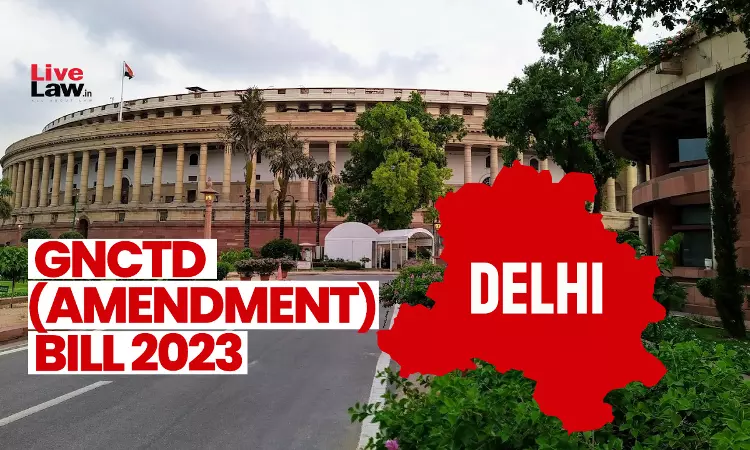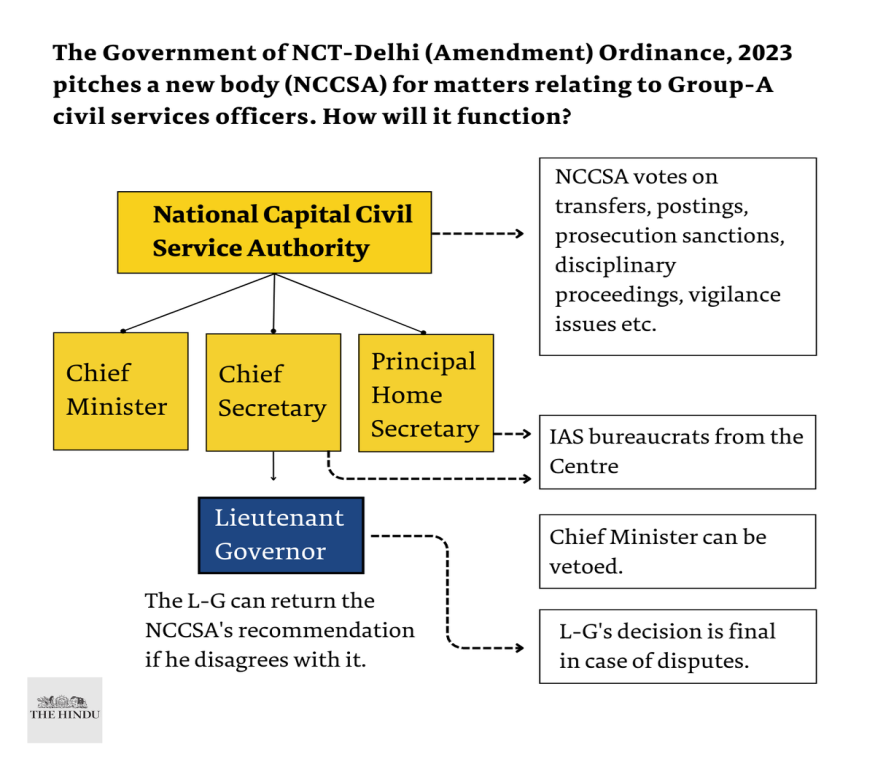Description

Copyright infringement not intended
Context: The Government of National Capital Territory of Delhi (Amendment) Bill, 2023 was introduced in the Lok Sabha. The bill seeks to amend the Government of National Capital Territory of Delhi Act, 1991, which defines the powers and functions of the Lieutenant Governor (LG) and the elected government of Delhi. The bill has several implications for the governance of Delhi, which is a union territory with a special status under the Constitution of India.

Details
- The bill aims to replace the Delhi Services Ordinance and make significant changes to the governance structure in Delhi.
- The statement of objects and reasons of the Bill justifies the need for such legislation by emphasizing the significance of Delhi as the capital of India, where several important national and international institutions and authorities are located.
- The bill aims to balance the interests of the nation with the interests of the Union territory of Delhi in the administration of the capital.
Key points about the bill
- Designating Lieutenant Governor (L-G) as the final authority: The bill proposes to give the Lieutenant Governor of Delhi the ultimate authority in matters related to the postings and transfers of all bureaucrats serving under the Delhi government. This means that the L-G will have the power to decide on the appointments and transfers of senior officers in the Delhi administration.
- Empowering L-G to appoint heads of boards and commissions: The bill also grants the Lieutenant Governor the power to appoint the heads of various boards or commissions enacted by the Delhi Legislative Assembly. This move gives the L-G more control over the functioning of these bodies.
- Deviation from the May 19 Ordinance: The draft bill deviates from the May 19 Ordinance in two aspects.
- It drops a section that had given the Legislative Assembly the power to make laws as per Article 239AA of the Constitution, except on matters enumerated in Entry 41 of List II of the Seventh Schedule.
- It empowers the L-G to appoint the heads of boards and commissions.
- Creation of the National Capital Civil Service Authority (NCCSA): The bill proposes the establishment of the NCCSA, which will be responsible for recommending transfers and postings of all Group ‘A’ officers (Indian Administrative Service - IAS) and officers of DANICS (Delhi, Andaman and Nicobar Islands Civil Service) serving in the Delhi government.
- Composition of the NCCSA: The NCCSA will be chaired by the Chief Minister of Delhi, who will be the ex-officio chairperson of the authority. The Chief Secretary of Delhi will serve as a member, and the Principal Home Secretary of Delhi will be the Member-Secretary. Decisions of the NCCSA will be made by a majority vote of the members present and voting.

The bill seems to be an attempt to redefine the power dynamics between the Delhi government and the central government, particularly regarding the control over bureaucrats and administrative matters.
Must-Read Articles:
GOVERNMENT OF NATIONAL CAPITAL TERRITORY OF DELHI (AMENDMENT) ACT, 2021: https://www.iasgyan.in/daily-current-affairs/government-of-national-capital-territory-of-delhi-amendment-act-2021
CENTRE ORDINANCE DESIGNATING L-G AS THE ADMINISTRATOR OF DELHI: https://www.iasgyan.in/daily-current-affairs/centre-ordinance-designating-l-g-as-the-administrator-of-delhi
|
PRACTICE QUESTION
Q. How does federalism operate under the Indian Constitution? What is the impact of federalism on India's governance and socio-political landscape? What are the main challenges faced in maintaining a federal structure, and how can the country move forward to strengthen and improve federalism in India?
|
.jpg)
https://epaper.thehindu.com/ccidist-ws/th/th_delhi/issues/45929/OPS/G6MBICPCG.1.png?cropFromPage=true















